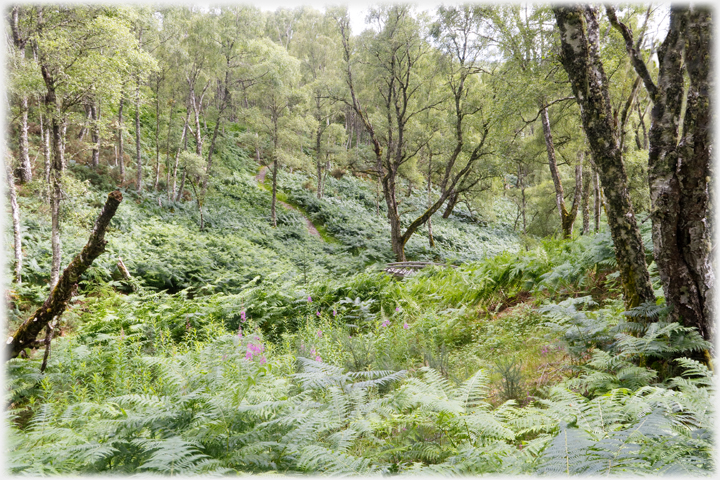
Wild Places
The poem means that those who in their youth and childhood wander alone in woods and wild places, ever after carry in their hearts a secret well of quietness and that they always long for rest and to get away from the noise and rumour of the world.
William Butler Yeats (1889)

...the universal power of the Dao is...always mediated by specific places, texts, and gods, each with its own history, lineage, and community...these locations are not within cities but within the relatively undomesticated spaces of the mountains.
James Miller (2017)

Two passages issuing from sources which seem almost as divergent as they could possibly be: one personal, intimate, psychological, modern and western; the other couched in terms of history, community, gods, ancient and eastern. Both advocating a centrality for Wild Places within us. The young Yeats finds for himself a secret well to be carried through life; the Daoist is directed towards a hidden location, deep in the
mountains,
 The primal importance of wilderness and its link to the nonhuman.
where the transformative peace that all life points towards can be approached: the
ineffable
The primal importance of wilderness and its link to the nonhuman.
where the transformative peace that all life points towards can be approached: the
ineffable
 Other fundamental ways of viewing the context in which we set our lives.
Dao. While these two presentations of Wild Places are culturally poles apart, their essence is singular. Both poet and sage urge us to seek the peace that is to be found away from the ‘rumour’ of
society;
Other fundamental ways of viewing the context in which we set our lives.
Dao. While these two presentations of Wild Places are culturally poles apart, their essence is singular. Both poet and sage urge us to seek the peace that is to be found away from the ‘rumour’ of
society;
 Wild places in a modern Scottish context.
a tumult which reverberates down from Han China through Irish politics to now.
Wild places in a modern Scottish context.
a tumult which reverberates down from Han China through Irish politics to now.
The quote is from page 110 of The letters of W B Yeats, edited by Allan Wade, published by Rupert Harper-Davis, London 1954. He is replying to Ellen O’Leary wondering about the meaning of his poem She who dwelt among the Sycamores. That letter was written in 1889; then in 1902 Yeats wrote to Lady Gregory saying “I don’t like that Sycamore poem, I think it perfectly detestable and always did...” p. 390 of his letters. Writing in The New York Times on 18th March 1984 Seamus Heaney agrees with the poet, but nevertheless welcomes the publication of the poem as reflecting the poet’s early work. The Miller quote is from his book China’s Green Religion: Daoism and the quest for a sustainable future, p.103, published by Columbia University Press, New York.
The photograph is from Torrachilty forest, some 25 miles north-west of Inverness in Scotland. Maybe this is not quite the kind of peace that Daoism has in mind as a small wooden bridge, and rather human sized path, can just be seen.
Above, hovering on blue introduces a link: click to go, move away to stay.

Saturday 27th April 2024
 ...guide to this site
...guide to this site